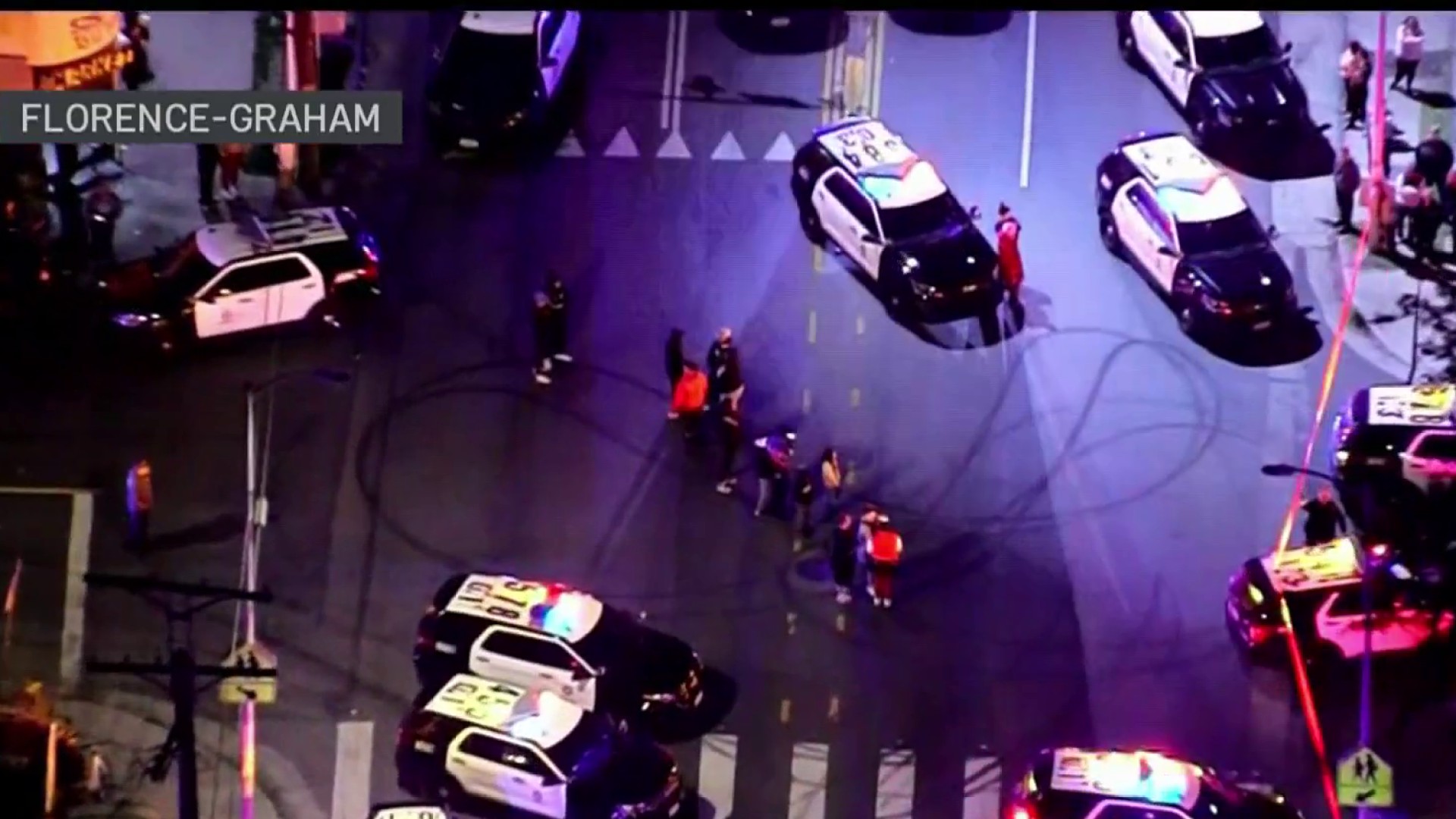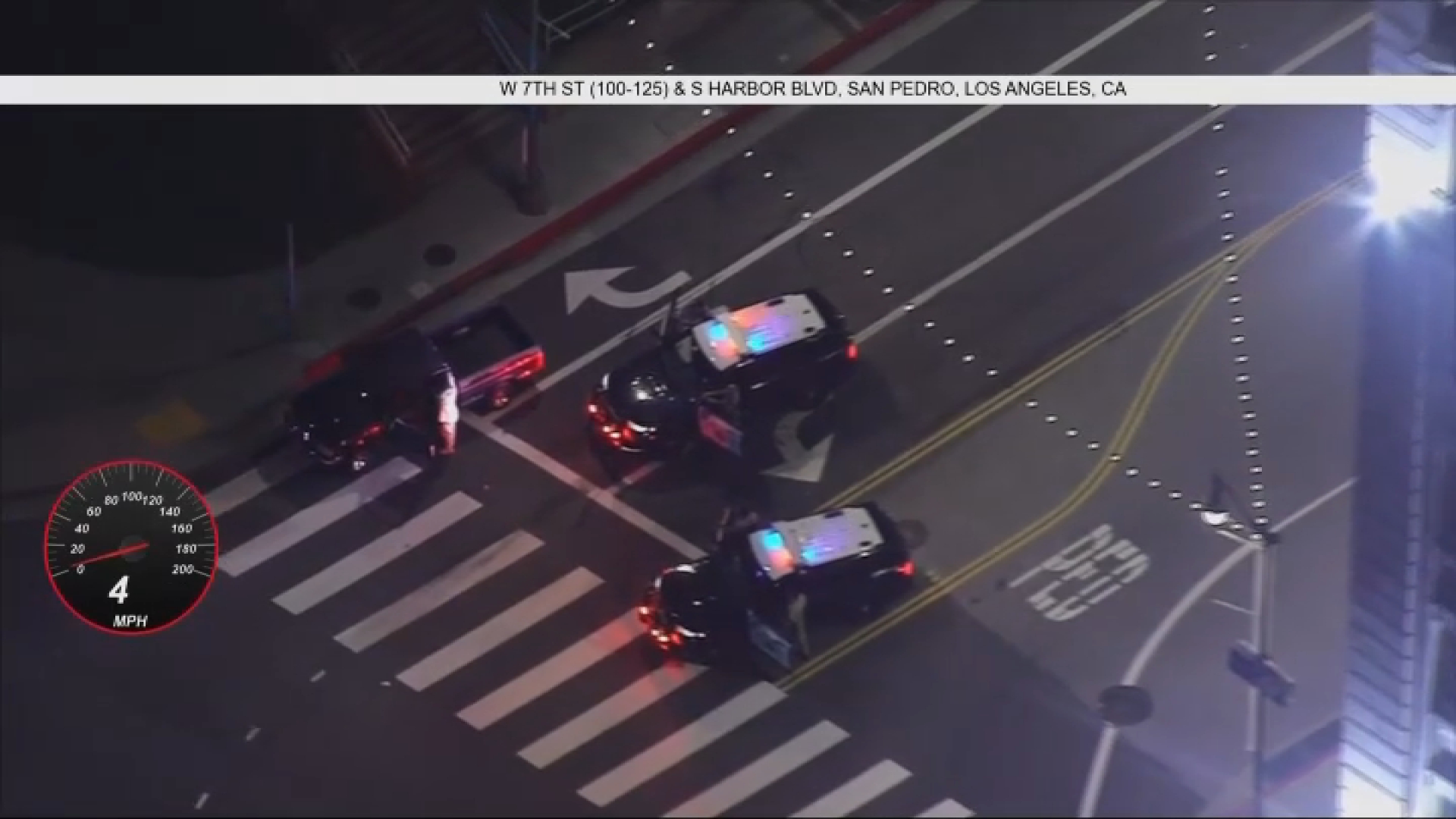The Los Angeles Board of Police Commissioners signed off Tuesday on rules for the use of body cameras for LAPD officers, clearing the way for the department to begin equipping personnel with the device over the coming months.
The commission voted 3-1 to approve the policies, with Commissioner Robert Saltzman casting the lone dissenting vote, following nearly two hours of debate that at times turned contentious.
Saltzman said he was "frustrated'' that commissioners and the public were not able to view and comment on the policies before the LAPD reached an agreement with the police officers' union on body cameras.
He said he was concerned about giving officers who are involved in police shootings or other use-of-force cases the ability to view the video footage before giving their statements.
He also said the policies do not address the issue of whether the video footage will be released to the public, nor do they address any limitations as to how the department will be able to use the footage.
Commission President Steve Soboroff countered that the public has had many opportunities to give input on the policies over the past few months. He also said the commission will have the opportunity to reassess the policies in six months, once the officers have actually put the body cameras to use.
Peter Bibring, an attorney with the American Civil Liberties Union, told the commission Tuesday that the ACLU no longer supports the body camera policy, despite being "optimistic'' when the 18-month policy drafting process began.
The body camera policy "fails to address some crucial issues,'' including allowing officers view footage while they are being investigated, Bibring said.
Giving officers the chance to view the footage before giving their statements ``taints officer testimony'' and would ``assist officers who are inclined to do so in lying'' about what happened, he said.
LAPD Police Administrator Arif Alikhan said that the release of the body camera video footage was not addressed in the use-policy because the department will ``abide by the law,'' which includes complying with court orders.
He also said releasing the footage to the public would have a "tremendous cost."
Chief Charlie Beck said as a general rule, the footage is considered evidence, which is not automatically released to the public, but that does not mean he will never release the footage.
The rules address questions of when the video cameras must be turned on, how long the recordings should last, how the devices are to be maintained and inspected, how the footage should be stored and if officers are allowed to immediately view the recordings.
Under the policy, officers involved in use-of-force incidents, such as police shootings, would not be allowed to view footage from a body camera unless the force investigator gives permission, but officers must view the video before being interviewed by investigators.
The department plans to initially assign 860 Taser Axon body cameras — donated to the city through Police Commission fundraising efforts — to officers in the Central, Mission and Newton police divisions.
Mayor Eric Garcetti recently proposed buying another 7,000 cameras to outfit all of LAPD's patrol officers.
The rules address questions of when the video cameras must be turned on, how long the recordings should last, how the devices are to be maintained and inspected, how the footage should be stored and if officers are allowed to immediately view the recordings.
Under the policy, officers involved in use-of-force incidents, such as police shootings, would not be allowed to view footage from the body camera unless the force investigator gives permission, but officers must view the video before being interviewed by investigators.
The policy also call for body cameras to be activated before an investigation or enforcement action begins, such as vehicle or pedestrian stops, car and foot chases, searches, arrests, use-of-force, witness and victim interviews, and crowd control.
News
Top news of the day
If an officer is unable to activate the camera in time, or if the camera fails to record, the officer must note the reasons and circumstances in a daily log.
Under the rules, officers are be allowed to stop recording if the witnesses or victims being interviewed say they will not make a statement on camera, and as long as the encounter is not confrontational.
Officers can decide not to record if they feel it would interfere with an investigation — such as in a rape, incest or sexual assault cases — or due to a victim's or witness' age, emotional or physical state or other sensitive factors.
They can also deactivate the camera if they feel the life of an undercover officer or informant is in danger, and if they are in a health care area with patients or at a rape treatment center.
In a prepared statement issued this morning, Craig Lally, president of the Los Angeles Police Protective League, the labor union representing police officers, said the LAPPL ``worked closely'' over the past several months to develop the draft policy.



